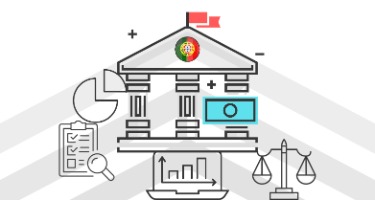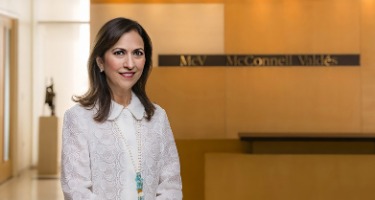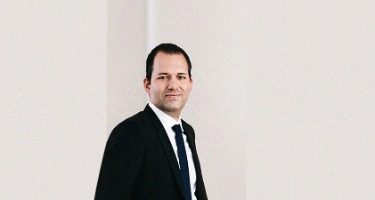In an interview with Best Lawyers CEO Phillip Greer, Diogo Ortigão Ramos discusses Cuatrecasas’ 2019 “Law Firm of the Year” award for Tax Law in Portugal. Ramos leads the firm’s Portuguese tax law practice, and credits his team’s success with both their longstanding reputation in the market and their unique vertical structure, grouping over 300 lawyers of varying specialties together within their Portuguese and Spanish tax practice.
What achievements from this past year are you most proud of?
Diogo Ortigão Ramos: I feel most proud of our firm’s reputation and the way we have sustained that reputation with our clients. We are a longstanding but very innovative firm in the market, and expectations upon us are high.
One way we do this is by taking a boutique approach and making each client the most important client. This gives us the opportunity to assist in a wide variety of sectors and matters, like the acquisition of banks or the incorporation of funds. We recently advised on the acquisition of the most relevant real estate portfolio on the Portuguese market. We had the opportunity to work on this type of transaction because of our skills and our international reputation.
Your firm boasts more than 300 lawyers practicing tax law, all organized into specialized teams. How do these specialized teams give the firm a competitive edge?
Within certain practice areas, we can define where other, supplemental areas of law may be useful. For instance, we may group together teams focusing on corporate income tax or personal income tax with tax litigation. We organize things in terms of industry. For example, I lead the private client’s sector in our Portuguese office. Not all lawyers working with private clients are tax lawyers; the team also addresses questions of citizenship, immigration, visas, and real estate. Especially in cases where a private client has a trust or a foundation, legal needs go well beyond tax law.
I think this is the right way to organize the firm: with cooperation, flexibility, and pragmatism. This approach, combining vertical and horizontal specialties differentiates us.
How will the new budget law impact the 2019 tax season and tax law in Portugal?
Roughly four years ago, we had two tax reforms provoked by the old environment on corporate income tax and personal income tax. These reforms dramatically changed the economy for investors in Portugal. We have since created a dynamic and friendly tax system for companies that target Portugal as a place to invest.
Portugal was, in many ways, the first country to foster globalization. Ever since the 15th century, when we started to “discover the world”, reaching Brazil, India, and so on, we have nurtured multiculturalism. Historically, this explains Portugal’s friendly atmosphere which now has also a competitive tax system. Even U.S. companies may want to use it. In that sense, I think that the big reform carried out some years ago was very positive.
In what ways has technology affected tax law?
Obviously, technology allows us to be more efficient because we can use technology to aggregate and filter information. Nevertheless, even great software and fantastic machines cannot replace the human factor. The human factor is what gives us true value. The emotional side. To make the most of technological advances, we have to add value by using the human factor, with dedication and creativity.
Is there anything else that you would like to share with me about your firm, either from this practice area or from other groups the firm is particularly proud of?
Well, I think that because of the development and dynamism of the Portuguese economy, the real estate and tourism sector, as well as the financial sector, are all very active at this stage, generating work also for the tax practice.
Regarding the tax area, I would say that tax litigation is high demand, too. In Portugal, we put anti-abuse legislation in place a few years ago and we are suffering the first adjustment on the market. That opened Pandora's Box in terms of tax litigation, apart from the ordinary cases. Finally, I highlight the private client sector, which, due to the consistency of Portugal’s regime, is consolidating and becoming very recognized in the world.































